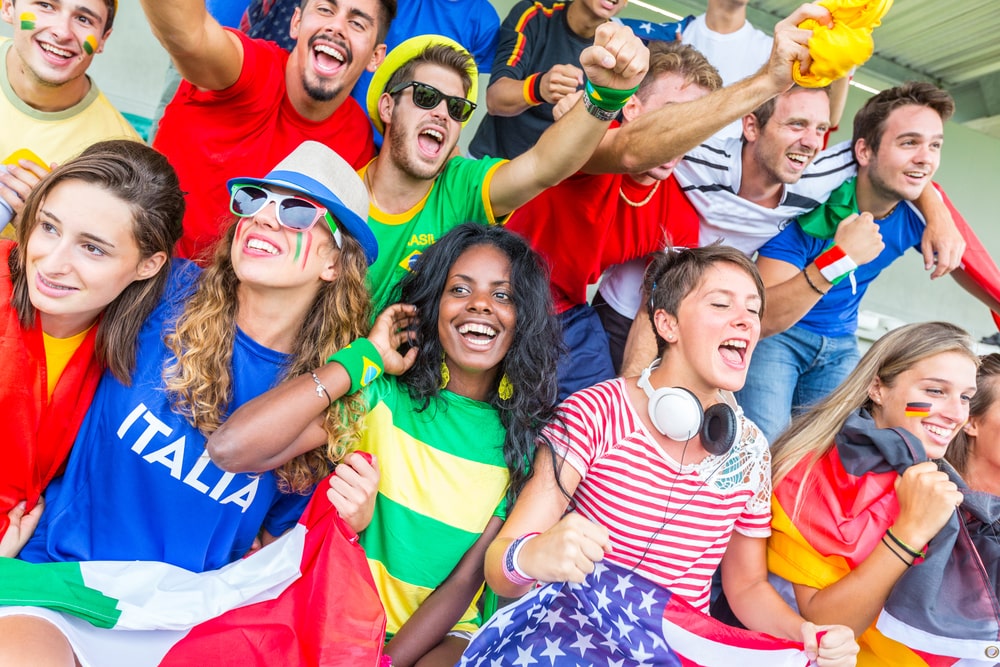Sports are incredible recreational activities with a considerable impact on most people’s lives. Millions take part in them in some shape or form, whether as a profession or a hobby. It cannot be underestimated how far-reaching this influence of sports can be.
The world of sports plays a significant role in building a healthier society by bringing people from all walks of life together. From benefiting communities and raising awareness about societal issues to helping solve economic problems, here are four ways sports positively impact societies.
1. Uplifting Economy

Sports have a tremendously positive impact on local economies. They represent a billion-dollar business and create a wide range of employment opportunities. Many sports jobs are available, from being athletes to even job opportunities in spectator sports. These include coaches, referees, agents, front office personnel, stadium vendors, and their employees.
Sports also help local economies by promoting tourism. Due to sports events like national or international tournaments, the number of tourists in the host city dramatically increases. Local markets, restaurants, and hotels get crowded and enjoy revenue increases.
2. Raising Awareness
Sports build tolerance in people, raise awareness, and help lessen the cultural divide. Given the broad media coverage and promotion such activities get, social issues in sports can be highlighted easily. This helps address and raise awareness about critical societal problems, such as societal injustice, racism, and the economic empowerment of marginalized communities. For instance, consider the NBA’s establishment of the Social Justice Coalition to create awareness of social problems. The players were seen to wear jerseys with words to support the Black Lives Matter movement.
Athletes’ model behavior and sportsmanship can also promote diversity and develop understanding towards communities that face cultural marginalization. An example would be the ‘Salah effect’ generated by Liverpool FC’s Mo Salah, which enabled cultural acceptance of the religion Islam amongst British fans, mitigating Islamophobia.
3. Promoting Unity

Sports can bring thousands of people from different countries under one united front. In games like the Olympics and FIFA, thousands of people share a particular connection as they support a specific team and are eager to see them win.
Sports also promote national unity, national pride, and collective identity. People are brought together by their desire to see their country win in international tournaments. This sense of conformity also helps nations in times of turbulence. An example would be South Africa’s 1995 Rugby World Cup victory, which helped the country heal from decades of Apartheid.
4. Benefiting the Community
Most leagues or teams have community relations departments, and many charitable organizations are affiliated with them. Professional and college athletes often spend time performing service in their communities. An example would be a renowned charity known as the Make-A-Wish foundation. This organization has partnered with many sports teams and athletes to help make the wishes of kids with life-threatening illnesses come true.
Many athletes also come forward during natural disasters like earthquakes and floods to help with rehabilitation, encouraging thousands of their fans to help and donate. They’ve also often used their fame and influence to accelerate building training institutions, playgrounds, hospitals, and so on, boosting society’s economic and social aspects.
Endnote
Many of us are touched by sports in one way or another, and that dramatically impacts communities. Sports can improve human society as it helps in generating meaningful opportunities for human society to flourish. Sports have the power to change us and the world around us. From raising awareness about racial, cultural, and societal issues to fostering a spirit of unity and compassion, sports’ impact on us is enormous.
Come check out Belly Up Sports on Twitter for more sports and entertainment news and content.






